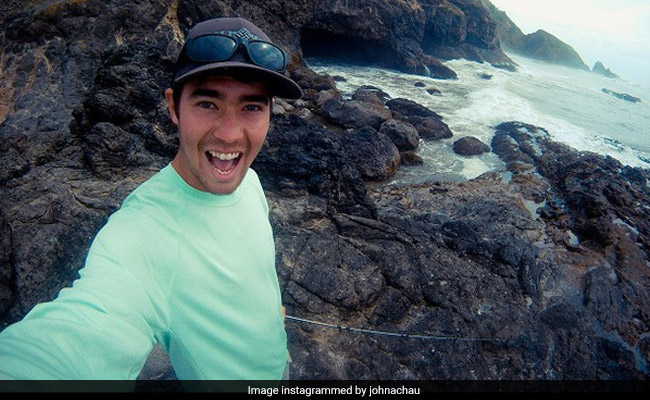
- US is not pursuing action against the Sentinelese tribe members
- American fundamentalist John Allen Chau was killed in November by tribals
- He went to the North Sentinel Island with the help of a fisherman
The US is not pursuing action against the Sentinelese tribe members in India's Andamans who killed an American missionary trying to enter their island last year, according to the top State Department official for religious freedom.
"The US government has not asked or pursued any sort of sanctions that the Indian government would take against the tribal people in this case," said Samuel Brownback, the Ambassador at Large for International Religious Freedom, on Thursday.
"It's a tragic situation and a tragic case of what's happened, but that's not something that's been asked," he said, answering a reporter's question during a news video conference if he would require the Indian government to take action against the Sentinelese tribe or recommend US sanctions on them.
American fundamentalist Christian missionary John Allen Chau was killed in November by tribals after he illegally went to the North Sentinel Island in the Andamans to convert them.
The Sentinelese do not allow outsiders, foreign or Indian, on their island. The Indian government does not permit visits to the island in deference to their desire to be isolated and also to protect their fragile immune systems from diseases, the simplest of which could be deadly to them.
Officials said John Chau was most likely killed by arrows. He had also written in his journal that a tribal shot an arrow into his bible during an earlier attempt to visit the island.
His body has not been recovered and fishermen who had taken him to a point near the island from where he approached it on a kayak said that later they saw some tribals dragging his body on the beach.
In last year's report, the US Commission on International Religious Freedom (USCIRF) headed by Mr Brownback, which backs proselytisation and missionary activities, criticised India asserting that in the case of religion-based attacks, "there has not been accountability for the killings due to ineffective prosecutions".
Mr Brownback's reaction this time could be tempered by the fact that John Chau threatened the existence of the North Sentinelese, who are estimated to number between 50 and 200, by exposing them to diseases that their isolation has not prepared them to face.

Survival International, a Britain-based organisation that works to protect isolated tribes, warned that John Chau's incursion could have led to infections by "deadly pathogens to which they have no immunity, with the potential to wipe out the entire tribe".
Given their total opposition to outsiders entering the island, any police action could lead to retaliation that could result in the annihilation of the Sentinelese.
Surveying the state of religious freedom around the world, Mr Brownback said although it has declined over the last 10 years, "I am optimistic and I think it's on the upswing."
He said in the past year, he observed politicians and governments realising that manipulating religion for their own benefit is not good. "If we're going to grow our economy, if we're going to have security, we need to have religious tolerance and religious freedom guaranteed for everybody," he added.
He said the visit of Pope Francis to the United Arab Emirates - said to be the first by a Catholic pontiff to the Arab Peninsula - was a "really milestone event".
Track Latest News Live on NDTV.com and get news updates from India and around the world

